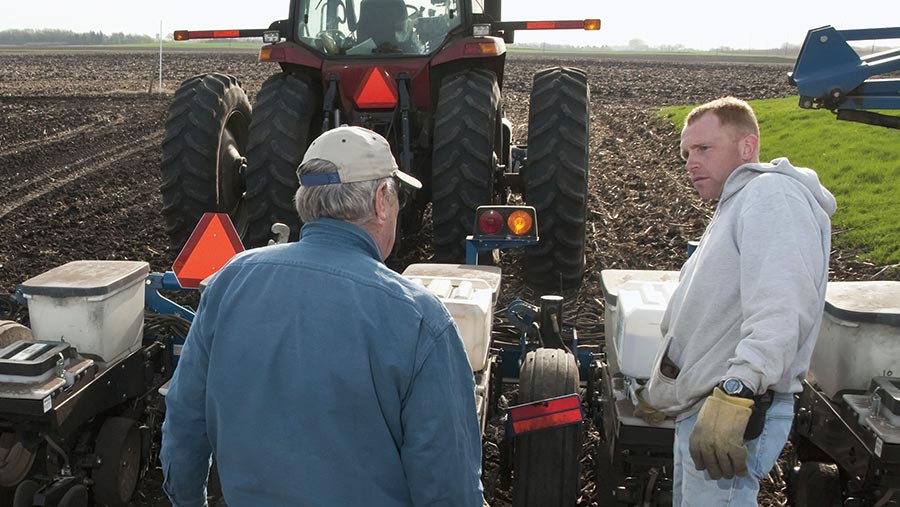How to give farm staff feedback and raise issues
 © Design-Pics-Inc/REX/Shutterstock
© Design-Pics-Inc/REX/Shutterstock Giving feedback to staff or dealing with difficult conversations and situations is hard in any business and Paul Harris of consultancy Real Success believes farming is no different.
The importance of getting these conversations right – whether you’re dealing with family or employees – can have a huge effect on the business and within families.
He outlines how to give effective feedback and how to take into account different personalities and tailor your approach to get the best results.
See also: 7 top tips for interviewing farm staff
Effective feedback conversations
Giving feedback can be tricky and is often avoided completely or ends up with no improvement in performance.
The most important aspect of effective feedback is to have some structure and preparation. The BOOST model suggests feedback must be:
- Balanced (positive and negative)
- Observed (ideally by yourself)
- Objective (without prejudice)
- Specific (with examples)
- Timely (not six months after an event)
Mr Harris also explains a simple model called ‘I SAID’ that encourages the person receiving the feedback to reflect on the behaviour or situation you wish to change:
- Intent – be clear on what you want to achieve from the conversation.
- Self-assessment – ask them questions to get them to reflect on their performance of the situation you wish to address. This is the most important aspect of effective feedback.
- Actions – have specific examples of the situation you wish to discuss.
- Impact – outline the impact on themselves or others.
- Do – agree what will take place now/in the future.
How to begin
It’s important to start a feedback session with something positive (which must be real and not just flattery) before you begin the self-assessment questions.
Ideally, ask open rather than closed questions to develop the conversation first and finish the session with some closed questions to agree actions.
Effective feedback example – damaged machinery
An employee is causing damage to machinery because they are driving too fast. Feedback may be:
- “You’ve been keeping the tractor really clean and tidy, thanks for that – it really helps.” (praise and impact)
- “How do you think it’s going?” (open question)
- “Things are going well in most areas but there are a couple of areas I’d like to talk about – is that OK?” (asked permission)
- “I have noticed a few dents on the tractor – you know there’s a cost to that don’t you?” (shows impact)
- “If we just took the foot off the gas a bit, we might have a chance of not damaging the tractor?” (closed question and action)
It’s important to recognise your personality style and that of the staff member or colleague you’re meeting with, to get the best from the conversation, says Mr Harris.
It’s important to firstly understand our personality style and those of our team, then learn how to give effective feedback and approach difficult conversations.
“We’re all slightly different and we all need to be spoken to differently.”
Mr Harris has developed the VITA profiling system specifically for the agricultural sector, which is based around four personality styles.
These styles can clash and it’s important to know how to adapt your style to work with others, he advises.
Personality styles
Visionaries are assertive, decisive, and driven by facts and results.
To others: May appear to be blunt.
How to talk to a visionary: Be direct, quick and get to the point with eye contact and confidence.
Investigators are organised, like to plan, are logical with high attention to detail.
To others: May appear to be critical.
How to talk to an investigator: Speak slowly and precisely. They need logic, reasoning and detail.
Team makers are supportive, considerate of others and often good listeners.
To others: May come across as hesitant.
How to talk to a team maker: Speak warmly, calmly and offer reassurance.
Adventurers are imaginative, optimistic, sociable and energetic.
To others: Can be easily distracted.
How to talk to an adventurer: Speak with energy and enthusiasm. They like work to be fun.
